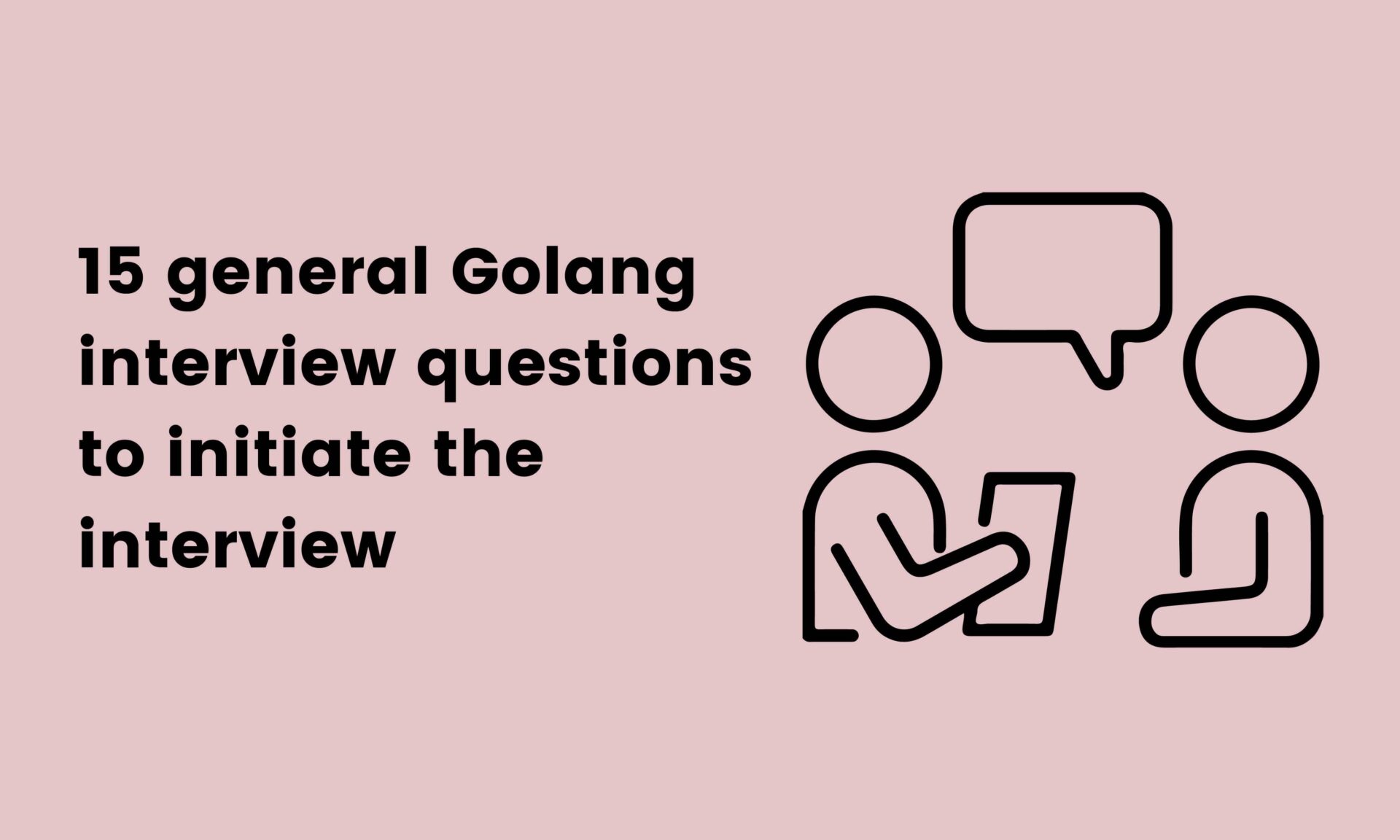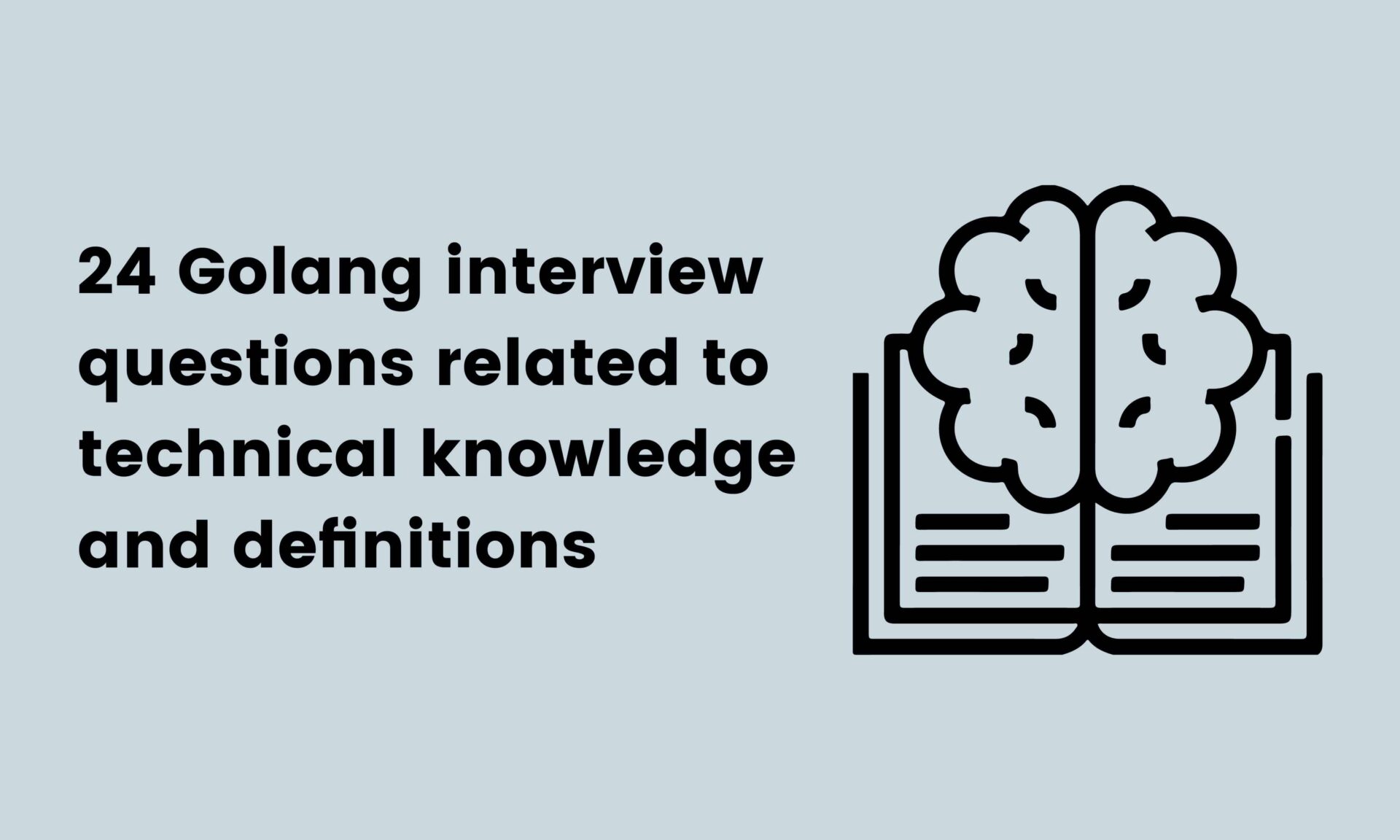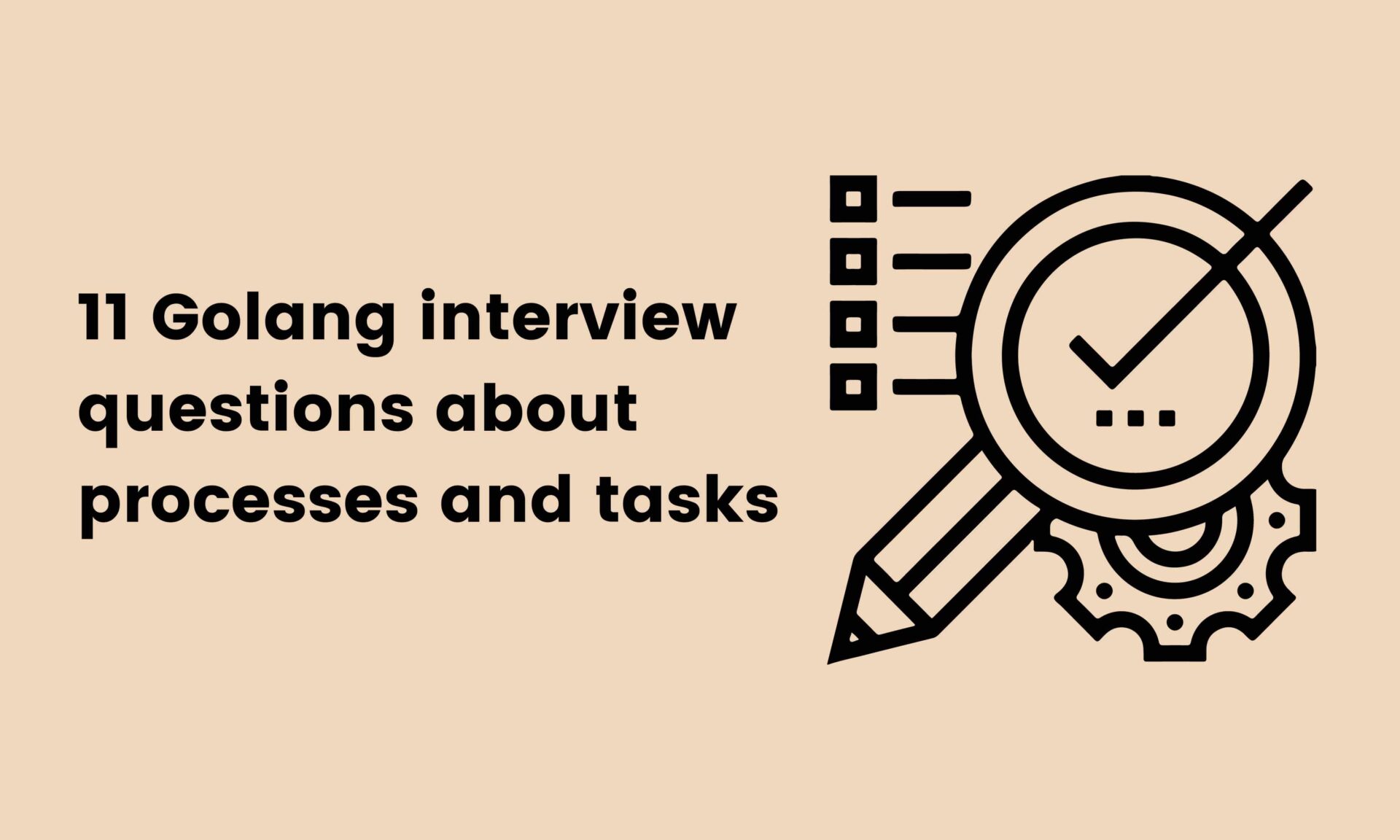50 Golang interview questions to ask talented interviewees
Golang professionals are in high demand, so if you’re searching for a developer with Go, you’re not alone.
As part of your recruitment process, you may be trying to figure out the best approach to hiring a Golang expert – if that’s the case, this article is for you.
Writing a strong Golang developer job description is the first step to attracting skilled developers to your open role. From there, building a skills assessment can help you effectively evaluate your applicants. For this, you need to pick a top skills testing platform like TestGorilla and create an assessment featuring a universal coding test to evaluate your candidates’ skills.” (anchor text underlined)
You’ll also learn a few tips on how to use a Golang skills test to streamline hiring.
The second method, which we advise you to combine with skills testing, is conducting structured interviews. Invite your best applicants to an interview and ask them targeted Golang interview questions.
If you’re struggling to find the right questions to ask candidates during the interview phase, we’ve provided a comprehensive list you can ask applicants below.
Table of contents
- 15 general Golang interview questions to initiate the interview
- 5 general Golang interview questions and answers to assess applicants
- 24 Golang interview questions related to technical knowledge and definitions
- 5 Golang interview questions and answers related to technical knowledge and definitions
- 11 Golang interview questions about processes and tasks
- 5 Golang interview questions and answers about processes and tasks in Go
- Which skills can you assess with a skills assessment featuring a Go test?
- When should you use a Golang skills test?
- Review your Golang professionals’ skills using Golang interview questions
15 general Golang interview questions to initiate the interview
Get to know if your applicants’ general Golang knowledge measures up to your expectations by asking them some of these 15 general Golang interview questions at the beginning of the interview.
What are the advantages of using Go?
Explain what Go is.
Which skills are you working on related to Go?
Which soft skills are you working on related to your work with Go?
Which technical skills do you think are important for programmers who use Golang?
Which soft skills do you think are important for programmers who use Golang?
Does Go support generic programming?
Is Go case-sensitive?
Name the key built-in supports in Go.
Explain whether Go supports type inheritance.
Explain whether Go supports operator overloading.
Describe your experience with Go.
Have you ever experienced any difficulty using the programming language Go?
Which factors make Golang a fast language?
Have you worked on any side projects using Go as a programming language?
5 general Golang interview questions and answers to assess applicants
Review your applicants’ knowledge by checking the answers to these five important Golang interview questions listed in the section below.
1. Which skills are you working on related to Go?
Interviewees may know that improving their Go skills is important, but are they using particular methods to achieve that?
For example, are your applicants practicing algorithm programming in Go to code more efficiently? You can assess this skill with our Go Algorithms test.
2. Is Go case-sensitive?
Applicants should be aware that Go is a case-sensitive programming language. Can they explain what this means in terms of coding?
For example, can they explain that Golang can distinguish between upper- and lowercase letters, meaning that programmers should input the exact value required?
3. Explain what Go is.
Interviewees wanting to become a Golang programmer for your organization should be aware that the Go is a general-purpose, open-source, and statically typed language. The creators of Go (working at Google at the time) designed it to be a simple, efficient, and reliable programming language.
4. Which soft skills are you working on related to your work with Go?
Some of the essential soft skills Go programmers should be able to demonstrate include problem-solving and time management skills. Do your applicants have these skills? Are they working to further improve them?
5. Which factors make Golang a fast language?
Three factors that contribute to the speed of Golang as a programming language are the concurrency model it uses, its small syntax, and its ability to hyperlink dependency libraries within one binary file.
The best insights on HR and recruitment, delivered to your inbox.
Biweekly updates. No spam. Unsubscribe any time.
24 Golang interview questions related to technical knowledge and definitions
Learn whether your Golang interviewees have the right technical knowledge and understanding of key definitions by asking them some of these 24 Golang interview questions.
Explain what a static type variable declaration is in Go.
Explain what a dynamic type variable declaration is in Go.
Explain what a string literal is.
Explain what a raw string literal is.
Explain what interpreted string literals are.
Name five types of data that Golang uses.
Explain what packages are.
Explain what a goroutine is.
Explain what a function closure is.
Explain what a Go interface is.
Explain what Lvalue is in Golang.
Explain what Rvalue is in Golang.
Name the only looping construct in Go.
Explain what a workspace is in Go.
Explain what the GoPATH environment variable is in Go.
Explain which symbol represents a pointer in Go.
Explain what a type assertion is in Go.
Explain what methods are in Golang.
What are operators in Go?
Explain what constant variables are in Go.
Explain what the scope of a variable refers to.
Explain what slice refers to in Go.
Explain what the GoPATH variable is in Go.
Explain what the GoROOT variable is in Go.
5 Golang interview questions and answers related to technical knowledge and definitions
Here, you’ll find our sample answers to five of the questions from the previous section. Determine whether your applicants have the right technical knowledge by comparing their responses to the ones listed below.
1. Explain what a Go interface is.
Are your applicants aware that an interface is a system programmers use to designate several method signatures? Can they also explain that since the Go interface is abstract, programmers can’t create instances of the Go interface but can create variables of interface types?
2. Explain what a workspace is in Go.
Candidates should know that workspaces in Go contain Golang code. Can they explain during the interview that workspaces are directory hierarchies with various root directories? Can they outline the three main directories? These are:
The src directory, which features packaged source files
The pkg directory, which contains the package objects
The bin directory, which contains commands that can be executed
3. Explain what the GOPATH environment variable is in Go.
Aspiring Golang programmers should know they can use the GoPATH environment variable to specify the workspace’s location. They should be able to explain that programmers must set the variable when they are developing code in Go.
4. Explain what a static type variable declaration is in Go.
Interviewees who want to prove their expertise in Golang should know that static type variable declarations ensure the compiler has the assurance that one variable exists for the provided type. It ensures the compiler doesn’t have to be aware of every detail of the variable when processing it.
5. Explain what a dynamic-type variable declaration is in Go.
Golang applicants seeking to show their knowledge should be able to explain that a dynamic-type variable declaration is used to declare a variable at any point in a Go program. Can they also make clear that dynamic type variable declarations need the compiler to interpret the variable type, which happens when the value is passed to it?
11 Golang interview questions about processes and tasks
Find out whether your applicants understand how to complete complex processes and tasks in Go by asking them some of these 11 Golang interview questions.
Explain how you would check variable types at runtime in Go.
Explain how you would concatenate a string.
Explain how you would create a custom testing suite in Golang.
Explain how you would return various values from a function in Go.
Explain what you would use the break statement for in Go.
Explain for what you would use the continued statement in Go.
Explain how you would swap variables in Go.
Explain how you would use the Goto statement in Golang.
Explain what you would use the switch statement for in Golang.
Explain how you would declare multiple variable types in a line of code in Golang.
Which syntax is applicable for creating a function in Go?
5 Golang interview questions and answers about processes and tasks in Go
Check your applicants’ responses by comparing them to the answers to these five essential Golang interview questions about processes and tasks below.
1. Explain how you would check variable types at runtime in Go.
Can your applicants explain that to check variable types at runtime in Go, they can use a switch to achieve this? Are they aware that the switch is known as a “type” switch, and can they explain how it works?
2. Explain what you would use the break statement for in Go.
Interviewees with sufficient Golang knowledge should know that break statements end the for loop or the switch statement. They may also explain that the break statement stops the execution of the innermost loop.
3. Explain for what you would use the continued statement in Go.
Applicants should be aware that the continued statement makes it simpler for the loop to iterate. It skips the code in between and works with loops (just as the break statement does), but instead of terminating a loop, it causes the program to continue through the remaining loop.
4. Explain what you would use the switch statement for in Golang.
Are your candidates aware that a switch statement enables programmers to assign execution to different code parts by focusing on the expression’s utility? Can they name the two main types of switch statements, including the expression switch and the type switch?
5. Explain how you would create a custom testing suite in Golang.
There are a few steps applicants may name when responding to this Golang interview question, such as:
Make a file and name it with the phrase _test.go at the end
Import the package using the import testing command
Write the required test function, which is func Test123(*testing.T)
Put the file you have created into a package
Run the command Go test
Which skills can you assess with a skills assessment featuring a Go test?
Skills assessments enable you to assess various skills related to Golang programming.
For this, you simply need to create an assessment featuring various skills tests – and if you’re looking to hire a developer with strong Go skills, don’t forget to include an intermediate Go test. Here are three examples of other skills you can assess:
1. SQL skills
If your next hire will use databases, potentially they will need to access them through an SQL database package; therefore, SQL skills can make your applicants’ roles simpler. Check whether your applicants know SQL and SQLite sufficiently well with an SQLite test.
2. Problem-solving skills
Solving problems is a fundamental part of coding in Golang or in any other programming language. Find out if your candidates can solve complex problems and have the right problem-solving mindset when coding in Golang with our Problem Solving test.
3. Golang algorithms
It’s important to ensure applicants have the right Golang algorithm skills to program applications in Go. Use our Golang Algorithms test to assess these skills quickly and efficiently.
When should you use a Golang skills test?
Use a Golang skills test early in your hiring process.
For the best results, we advise administering a skills assessment immediately after collecting applications, before or even instead of screening resumes. In fact, resume screening is a slow and outdated process that will only slow you down and waste time you could dedicate to other initiatives (such as building an onboarding plan).
Review your Golang professionals’ skills using Golang interview questions
Now that you have all the information you need, it’s time to hire the best Golang professionals for your team! Use skills testing at the start of the recruitment process, and remember: It can even be an excellent replacement for resume screening.
For the best results, use our Go Coding test to assess candidates’ skills, in combination with other skills tests and with the interview questions from this article.
With the help of TestGorilla, you can hire exceptional Golang professionals without any setbacks. Try TestGorilla for free.
You've scrolled this far
Why not try TestGorilla for free, and see what happens when you put skills first.


















